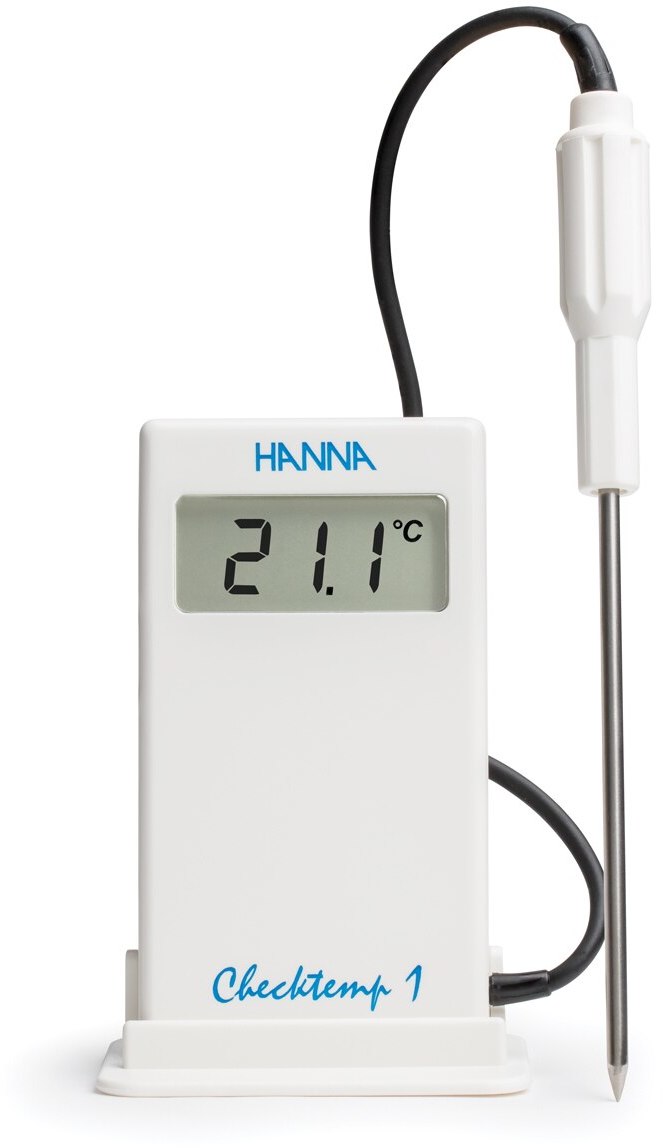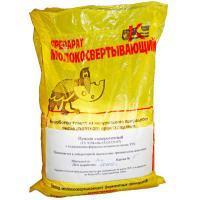COMMENTARY: Taxes in 2025: What is changing in the legislation
Amendments to the Tax Code have already been adopted in the first and second readings in the House of Representatives and approved by the Council of the Republic. First Deputy Minister of Finance Dmitry Kiiko and Deputy Minister of Taxes and Duties Svetlana Yeskova spoke about the changes planned for 2025.
"Traditionally, changes are made due to the need to bring the Tax Code into line with the legislative acts that were adopted during the year. it is also necessary to adapt tax rates to the ongoing inflation and other processes. A number of changes were proposed based on the results of the analysis of the effectiveness of incentive measures that have been in effect for quite a long period and it was already possible to sum up the results and draw certain conclusions. In addition, a number of adjustments are related to the practical application of tax legislation, the results of the control work of the Ministry of Taxes and Duties and other bodies, initiatives and appeals of taxpayers, which were analyzed and summarized," said Dmitry Kiiko.
Indexation of tax rates
The first major block of changes is the basic tax policy measures. It is envisaged to index tax rates set in Belarusian rubles based on the forecast inflation parameter. The rates of land tax, real estate tax , environmental tax, and personal income tax will be indexed in fixed amounts. At the same time, deductions and benefits for income tax are indexed - here indexation is based on the growth rate of nominal wages.
"It is proposed to increase excise rates on cigarettes of the first price group by 11.9%. The remaining excise rates on tobacco andALCOHOL will be indexed within the inflation parameters. It is proposed to maintain excise rates on motor fuel without indexation. Non-alcoholic energy drinks will be introduced as a new object of excise taxation. The rate will be 50 kopecks per liter of finished product. The measure is proposed as part of a gradual expansion of excisable products. It is expected to come into force on January 1, 2026, so that taxpayers can adapt to the changes," the First Deputy Minister of Finance noted.
The second block is to permanently consolidate or extend the validity of tax policy measures on budget consolidation that were adopted in previous years. Such measures were taken to adapt the economy to work in the conditions of a pandemic and sanctions. "We tried to take these measures selectively, without increasing the tax burden on the vast majority of taxpayers," added Dmitry Kiyko. In particular, the increased income tax rate of up to 25% will continue to apply when the taxable base exceeds Br25 million, as well as the 10-fold increased transport tax rates for luxury cars with a service life of no more than three years.
Revision of tax benefits
The third block is the implementation of additional tax consolidation measures and the elimination of deficiencies identified during the audit. "The right to an investment deduction will apply only to commercial organizations for industrial buildings and structures. The use of investment deductions by budgetary organizations, public and religious associations, and other non-profit organizations will be excluded due to the lack of production activity," noted the First Deputy Minister of Finance.
It is proposed to cancel the income tax benefit for individuals with respect to income received from the sale of shares in the authorized capital and stocks of Belarusian organizations owned by the taxpayer for at least three years. In addition, it is proposed to gradually cancel the reduced rates of profit tax and income tax on dividends. It is also envisaged to increase the tax rate on income from dividends received by foreign organizations from 15% to 25%.
"We estimate the total effect of all consolidation measures at more than Br300 million," added Dmitry Kiiko.
The fourth block is social incentive measures. Among them is the extension of tax benefits on profit tax, land tax, and land rent for organizations employing disabled people for three years. It is also proposed to extend the tax break on profit and income tax for investment funds for five years. In addition, it is proposed to introduce the possibility of taking into account expenses for the delivery of workers to and from work as part of other expenses when taxing profits.
The possibility of applying the standard tax deduction established for young specialists is being expanded. It will apply to a larger number of categories. The size of such a tax deduction will also increase.
It is also planned that the restriction regarding a one-time receipt of a property deduction for large families who build or buy housing will be lifted. Thus, large families will be able to use the property deduction several times.
Cryptocurrencies
A new article "Features of calculating and paying income tax from individuals with respect to income received from transactions with digital signs (tokens)" is planned to be introduced into the Tax Code of Belarus from 2025. Income is recognized as any type of funds received from such transactions, including from mining, exchanging tokens for other tokens, alienation for Belarusian rubles, foreign currency, electronic money .
"For HTP residents, the income tax rate is 9%. For entities that are not HTP residents, the generally established rate of 20% will be applied, and if the gross profit exceeds Br25 million - 25%," added Dmitry Kiyko.
There will be no need to pay income tax for individuals if the income is received from transactions with tokens created by residents of the High Technologies Park and (or) through HTP residents, from transactions with tokens made through HTP residents. Also, income from mining activities, from the exchange of tokens for other tokens (except for illegal and prohibited activities) and if tokens are received as a gift or as an inheritance from individuals will not be considered an object of taxation.
Changes for foreign organizations
For diplomatic missions, consular offices of foreign states, missions and bodies of international organizations and interstate entities that are registered with the tax authority, the administration procedure for the return of value added tax will change from 2025. Instead of territorial inspectorates, such organizations had to submit documents for the return of VAT to the Tax Ministry Inspectorate in MINSK.
Registration of foreign organizations on the basis of contracts providing for the performance of work and the provision of services in Belarus is also abolished. Such changes occurred due to the entry into force of the new version of the Civil Code. Starting from November 19, 2024A six-month transition period has been in effect since 2015. "This is a period for such organizations to bring their documents into compliance. During the six-month period, they can continue to conduct business under the same conditions. But from May 19, a foreign legal entity that is registered with the tax authorities and operates through a permanent establishment will have to either open a branch, or create a legal entity, or become part of an organization in Belarus, or cease operations in accordance with the procedure established by law," noted Svetlana Yeskova.
Counteracting shadow schemes
"In the context of counteracting shadow schemes, in particular with the use of the simplified taxation system (STS) or with unjustified return of value added tax, certain provisions have been included in the Tax Code. The first is a ban on the use of the STS for organizations created as part of a reorganization. Second, we have introduced the right of the tax authority to restrict and renew access to the payer's personal account on the portal of electronic invoices. At the same time, such an opportunity will only be available when the payer does not actually perform business transactions, and also has a debt on value added tax to the budget," said the Deputy Minister of Taxes and Duties.
More detailed conditions will be spelled out in the resolution of the Ministry of Taxes and Duties, which will be adopted in pursuance of this rule. "And I would like to reassure conscientious taxpayers a little - this provision will affect suppliers, that is, not buyers. And I would like to recommend that buyers exercise due diligence when choosing a counterparty. This is very important. Today, many information resources allow you to do this," added Svetlana Yeskova.
Digitalization
Last year, the Ministry of Taxes and Duties took on the preparation of declarations for organizations on land tax. Almost 77% of taxpayers confirmed them and did not make any changes. By January 30, 2025, taxpayers will again receive such completed declarations. "And one more step forward - organizations will receive the same completed declarations for transport tax. We also want to start pre-filing value-added tax declarations based on electronic invoices. I hope that in 2025 we will successfully develop this project so that in 2026 you will already have this opportunity," the Deputy Minister of Taxes and Duties noted.
Since 1 May 2024, cross-border electronic document flow has been in operation between the subjects of Belarus and RUSSIA. "This issue is of great importance. But the success of the project will depend primarily on the taxpayers. Your involvement in the use and preparation of electronic documents will allow the tax authorities of the two countries to begin working on the issue of simplifying the administration of indirect taxes. Perhaps, with your involvement, we will consider the possibility of canceling the application for payment of indirect taxes, which are currently processed during cross-border trade. The interest for business is obvious," Svetlana Yeskova emphasized.
Valeria GAVRILOVA,
BELTA.
"Traditionally, changes are made due to the need to bring the Tax Code into line with the legislative acts that were adopted during the year. it is also necessary to adapt tax rates to the ongoing inflation and other processes. A number of changes were proposed based on the results of the analysis of the effectiveness of incentive measures that have been in effect for quite a long period and it was already possible to sum up the results and draw certain conclusions. In addition, a number of adjustments are related to the practical application of tax legislation, the results of the control work of the Ministry of Taxes and Duties and other bodies, initiatives and appeals of taxpayers, which were analyzed and summarized," said Dmitry Kiiko.
Indexation of tax rates
The first major block of changes is the basic tax policy measures. It is envisaged to index tax rates set in Belarusian rubles based on the forecast inflation parameter. The rates of land tax, real estate tax , environmental tax, and personal income tax will be indexed in fixed amounts. At the same time, deductions and benefits for income tax are indexed - here indexation is based on the growth rate of nominal wages.
"It is proposed to increase excise rates on cigarettes of the first price group by 11.9%. The remaining excise rates on tobacco andALCOHOL will be indexed within the inflation parameters. It is proposed to maintain excise rates on motor fuel without indexation. Non-alcoholic energy drinks will be introduced as a new object of excise taxation. The rate will be 50 kopecks per liter of finished product. The measure is proposed as part of a gradual expansion of excisable products. It is expected to come into force on January 1, 2026, so that taxpayers can adapt to the changes," the First Deputy Minister of Finance noted.
The second block is to permanently consolidate or extend the validity of tax policy measures on budget consolidation that were adopted in previous years. Such measures were taken to adapt the economy to work in the conditions of a pandemic and sanctions. "We tried to take these measures selectively, without increasing the tax burden on the vast majority of taxpayers," added Dmitry Kiyko. In particular, the increased income tax rate of up to 25% will continue to apply when the taxable base exceeds Br25 million, as well as the 10-fold increased transport tax rates for luxury cars with a service life of no more than three years.
Revision of tax benefits
The third block is the implementation of additional tax consolidation measures and the elimination of deficiencies identified during the audit. "The right to an investment deduction will apply only to commercial organizations for industrial buildings and structures. The use of investment deductions by budgetary organizations, public and religious associations, and other non-profit organizations will be excluded due to the lack of production activity," noted the First Deputy Minister of Finance.
It is proposed to cancel the income tax benefit for individuals with respect to income received from the sale of shares in the authorized capital and stocks of Belarusian organizations owned by the taxpayer for at least three years. In addition, it is proposed to gradually cancel the reduced rates of profit tax and income tax on dividends. It is also envisaged to increase the tax rate on income from dividends received by foreign organizations from 15% to 25%.
"We estimate the total effect of all consolidation measures at more than Br300 million," added Dmitry Kiiko.
The fourth block is social incentive measures. Among them is the extension of tax benefits on profit tax, land tax, and land rent for organizations employing disabled people for three years. It is also proposed to extend the tax break on profit and income tax for investment funds for five years. In addition, it is proposed to introduce the possibility of taking into account expenses for the delivery of workers to and from work as part of other expenses when taxing profits.
The possibility of applying the standard tax deduction established for young specialists is being expanded. It will apply to a larger number of categories. The size of such a tax deduction will also increase.
It is also planned that the restriction regarding a one-time receipt of a property deduction for large families who build or buy housing will be lifted. Thus, large families will be able to use the property deduction several times.
Cryptocurrencies
A new article "Features of calculating and paying income tax from individuals with respect to income received from transactions with digital signs (tokens)" is planned to be introduced into the Tax Code of Belarus from 2025. Income is recognized as any type of funds received from such transactions, including from mining, exchanging tokens for other tokens, alienation for Belarusian rubles, foreign currency, electronic money .
"For HTP residents, the income tax rate is 9%. For entities that are not HTP residents, the generally established rate of 20% will be applied, and if the gross profit exceeds Br25 million - 25%," added Dmitry Kiyko.
There will be no need to pay income tax for individuals if the income is received from transactions with tokens created by residents of the High Technologies Park and (or) through HTP residents, from transactions with tokens made through HTP residents. Also, income from mining activities, from the exchange of tokens for other tokens (except for illegal and prohibited activities) and if tokens are received as a gift or as an inheritance from individuals will not be considered an object of taxation.
Changes for foreign organizations
For diplomatic missions, consular offices of foreign states, missions and bodies of international organizations and interstate entities that are registered with the tax authority, the administration procedure for the return of value added tax will change from 2025. Instead of territorial inspectorates, such organizations had to submit documents for the return of VAT to the Tax Ministry Inspectorate in MINSK.
Registration of foreign organizations on the basis of contracts providing for the performance of work and the provision of services in Belarus is also abolished. Such changes occurred due to the entry into force of the new version of the Civil Code. Starting from November 19, 2024A six-month transition period has been in effect since 2015. "This is a period for such organizations to bring their documents into compliance. During the six-month period, they can continue to conduct business under the same conditions. But from May 19, a foreign legal entity that is registered with the tax authorities and operates through a permanent establishment will have to either open a branch, or create a legal entity, or become part of an organization in Belarus, or cease operations in accordance with the procedure established by law," noted Svetlana Yeskova.
Counteracting shadow schemes
"In the context of counteracting shadow schemes, in particular with the use of the simplified taxation system (STS) or with unjustified return of value added tax, certain provisions have been included in the Tax Code. The first is a ban on the use of the STS for organizations created as part of a reorganization. Second, we have introduced the right of the tax authority to restrict and renew access to the payer's personal account on the portal of electronic invoices. At the same time, such an opportunity will only be available when the payer does not actually perform business transactions, and also has a debt on value added tax to the budget," said the Deputy Minister of Taxes and Duties.
More detailed conditions will be spelled out in the resolution of the Ministry of Taxes and Duties, which will be adopted in pursuance of this rule. "And I would like to reassure conscientious taxpayers a little - this provision will affect suppliers, that is, not buyers. And I would like to recommend that buyers exercise due diligence when choosing a counterparty. This is very important. Today, many information resources allow you to do this," added Svetlana Yeskova.
Digitalization
Last year, the Ministry of Taxes and Duties took on the preparation of declarations for organizations on land tax. Almost 77% of taxpayers confirmed them and did not make any changes. By January 30, 2025, taxpayers will again receive such completed declarations. "And one more step forward - organizations will receive the same completed declarations for transport tax. We also want to start pre-filing value-added tax declarations based on electronic invoices. I hope that in 2025 we will successfully develop this project so that in 2026 you will already have this opportunity," the Deputy Minister of Taxes and Duties noted.
Since 1 May 2024, cross-border electronic document flow has been in operation between the subjects of Belarus and RUSSIA. "This issue is of great importance. But the success of the project will depend primarily on the taxpayers. Your involvement in the use and preparation of electronic documents will allow the tax authorities of the two countries to begin working on the issue of simplifying the administration of indirect taxes. Perhaps, with your involvement, we will consider the possibility of canceling the application for payment of indirect taxes, which are currently processed during cross-border trade. The interest for business is obvious," Svetlana Yeskova emphasized.
Valeria GAVRILOVA,
BELTA.



























































